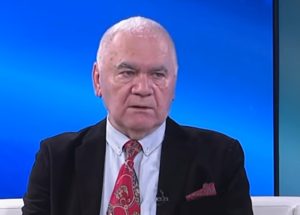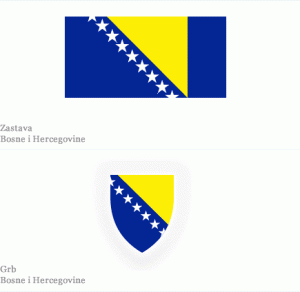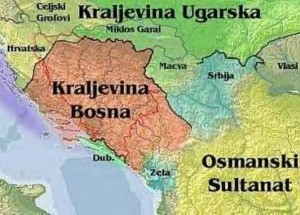The genocidal legacy of Radovan Karadžić lives on in Republika Srpska, media statement by prof. dr. David Pettigrew

27 March 2016 KRUG 99- Sarajevo “Negiranje je posljednja faza genocida i priprema novog”
prof. dr. David Pettigrew, Professor of Philosophy Southern CT State University, Steering Committee Yale University Genocide Studies Program.
The genocidal legacy of Radovan Karadžić lives on in Republika Srpska
Instances of genocide denial, glorification of war criminals, demeaning comments about Bosniaks and non-Serbs, prohibition of memorials for the victims, discrimination, and provocations directed at non-Serb returnees in Republika Srpska indicate that there are limits to the legal process, in spite of his conviction on 10 of 11 Counts, including the conviction for Genocide in Srebrenica. The failure to arrive at a conviction for Genocide on Count 1 in the seven Municipalities –in spite of the recognized intention to permanently remove Bosnian Muslims and Bosnian Croats from Bosnian Serb-claimed territory, the finding with respect to the coordination and planning of the Joint Criminal Enterprise, and the convictions for the actual atrocities — is a painful affront to the victims and the survivors, and will, no doubt, embolden a new wave of genocide denial and cultural suppression in Republika Srpska. It is a matter of great concern that such assertions and actions have the effect of inciting contempt and hatred against Bosniaks and other non-Serbs. They constitute nothing less than the classically recognized predictors of a genocide-to-come. When the normalization of atrocities, the glorification of the perpetrators, and the dehumanization of the targeted other become accepted modes of discourse, we see again, the seeds of genocide within the sociopolitical culture of Republika Srpska. With Raphael Lemkin, who coined the term “genocide,” we can identify this current legacy as “cultural genocide.” For Lemkin, cultural genocide, with legal and social dimensions, would include the suppression and restriction of cultural life, including monuments and memorials, and the imposition of discriminatory and dehumanizing laws. In Prijedor, for example, the survivors are prohibited from establishing memorials to the victims, while the perpetrators have installed a memorial near the site of the Trnopolje concentration camp. Recently, the Prijedor Assembly refused to consider a petition from parents requesting a memorial for the children murdered in the Prijedor area in 1992. In a case of “legal” discrimination, Muniza Oprašić, was informed that if she wished to return to her home in Višegrad municipality from which she was forcibly expelled in 1992, she would have to pay a fee of 10,000 Euros to the Bosnian Serb family that had occupied her house. The Karadžić indictment includes the charge of the wanton destruction of mosques, and even with his conviction, there have been an increase of incidences in recent years of Serbian Orthodox churches being constructed in Bosniak villages in Republika Srpska. Some churches are constructed on the ruins of the mosques, and others are constructed in strategic locations as intimidating provocations. In Višegrad, the Municipality still seeks to destroy the Pionirska Street house so as to erase the memory of the women and children who were burned alive in June 1992. The destruction of the house is part of a “legal” administrative expropriation process. We recently witnessed the dedication of a student dormitory in Pale to Mr. Karadžić, and the creation of a memorial room for the Bosnian Serbs on the site of the Trnopolje concentration camp: both glorifying perpetrators and effectively denying genocide. The ICTY indictment of Karadžić may itself have contributed to the suppression of memory and genocide denial in Republika Srpska, when in 2009, in the interest of a “fair and expeditious trial,” the court removed eight Municipalities from the Indictment. Višegrad was among the municipalities that was removed, or “struck through,” along with the crimes committed at Pionirska Street house or at Vilina Vlas. This removal of the Municipalities –along with the failure to admit evidence from Tomašica– may well have contributed to the failure of the Prosecution to achieve a genocide conviction for Count 1. Indeed, the removal of Višegrad from the Count 1 Genocide Indictment seemed to contradict the court's own ruling in the Lukić case that deemed the crimes committed at the Pionirska house to be “the worst acts of inhumanity that a person may inflict on others,” in terms of their “viciousness,” and “brutality.” When I accompanied the MPI and ICMP to witness the exhumations of the victims from the Drina River in Višegrad in 2010, I could not have imagined that it would be in the interest of justice to remove Višegrad or other Municipalities from the indictment. When the Bosnian Serb Municipality forcibly entered the private Stražište cemetery in January 2014, and ground the word “genocide” from the memorial to victims, it effectively “struck through” the term “genocide” in the same way that Višegrad had been removed from the Karadžić indictment: if the intention was different, the result was the same. The cultural genocide in Republika Srpska, in its legal, social, and cultural dimensions, is the legacy of Radovan Karadžić as it continues to further his objective of permanently removing non-Serbs from Republika Srpska through discrimination and psychological intimidation. In response to the limits of the legal process, the international community needs to undertake initiatives for constitutional reform that would re-unify Bosnia with national laws opposing genocide denial, prohibiting the glorification of war criminals, and preventing discrimination and apartheid. Such an initiative for enduring justice would address the fact that Republika Srpska was created with a genocidal intention, and that its recognition at Dayton was a reward for a successful genocide. Finally, I call upon the Chief Prosecutor, Serge Brammertz, to appeal the acquittal of the Radovan Karadžić for Count 1 for Genocide.







